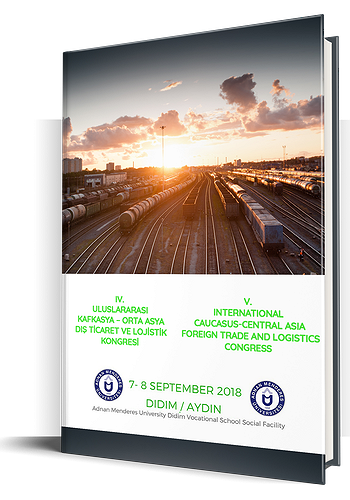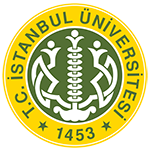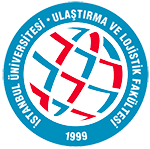
Ulaştırma ve Lojistik Kongreleri
- Türkçe
- Tam Metin
- 2018
Türkiye İmalat Sanayi Alt Sektörlerinde İhracatın İstihdam Esnekliği: Panel Veri Analizi
Gonca Akgün Güngör
Dr. Öğr. Üyesi, Muğla Sıtkı Koçman Üniversitesi, Muğla, Türkiye
Aynur Yıldırım
Dr. Öğr. Üyesi, Muğla Sıtkı Koçman Üniversitesi, Muğla, Türkiye
Uluslararası ticaret teorisinde serbest ticaret, ticarete konu malların küresel talebini arttırarak üretimin genişlemesine ve paralelinde istihdam fırsatlarına öncülük etmektedir. Nitekim literatürde yaygın görüş, ihracattaki büyümenin, üretimde çıktı artışına yol açması aracılığıyla istihdam artışına ve işgücü yoğunluğuna öncülük edeceğini desteklemektedir. Geleneksel ticaret teorilerinden Heckscher-Ohlin Teorisinden türetilen Stolper-Samuelson modelinde, serbest ticaret ülkede bol bulunan faktörün lehine sonuçlanmaktadır. Gelişmekte olan ülkelerde emek nispeten bol olduğu ve emek-yoğun üretim yapıldığından, ticaretteki artışın vasıfsız işgücünün daha yoğun olarak çalıştırıldığı emek yoğun sektörlerdeki işgücü talebini arttıracağı ve tersine sermaye yoğun sektörlerde işgücü talebini azaltacağı vurgulanmaktadır. Bu nedenle, artan ticaretin özellikle ihracata-yönelik sektörlerde istihdam esnekliğini arttırması beklenmektedir. Çalışma, 2003-2015 döneminde Türkiye imalat sanayi alt sektörlerinde ihracatın istihdam esnekliğini Panel Veri Analizi ile incelemeyi amaçlamaktadır. İmalat sanayi alt sektörleri emek yoğun ve sermaye yoğun sektörler olarak sınıflandırılarak, ihracatın vasıf düzeyleri ve faktör yoğunlukları farklı olan alt sektörlerde işgücü talebi üzerinde yarattığı etkiler incelenmiştir. Analiz sonuçlarına göre, ihracatın istihdam esnekliği imalat sanayinin sermaye yoğun alt sektörlerinde emek yoğun alt sektörlerine göre daha yüksektir. Buna göre, geleneksel teorinin öngördüğünden farklı olarak, ihracattaki artış hem emek hem de sermaye yoğun sektörlerde istihdamı arttırmaktadır; ancak artış oranı sermaye yoğun sektörlerde nispeten daha yüksektir. Türkiye’de ihracattaki artış, zamanla üretimi ve istihdamı (sanayileşmeye doğru) sermaye-yoğun bir dönüşüm sürecine itmekte ve dolayısıyla daha vasıflı işgücü talebinde de bir artış yaratmaktadır.
Anahtar Kelimeler: Panel Veri Analizi, İhracatın İstihdam Esnekliği, Serbest Ticaret, İhracat Artışı, İşgücü Talebi
Employment Elasticity of Exports in Turkey’s Manufacturing Sub-Sectors: Panel Data Analysis
In the international trade theory, free trade leads to the expansion of production and in parallel to causes employment opportunities by increasing the global demand for tradable goods. As a matter of fact, the widespread view in the literature supports that the growth in exports will lead to increase of employment and labor intensity through the output growth in production. In the Stolper-Samuelson model that is one of the traditional trade theories and derived from the Heckscher-Ohlin theory, free trade results in favor of abundant factor in the country. Since labor is relatively abundant and labor-intensive production is being done in developing countries, it is emphasized that the increase in trade will increase labor demand in labor-intensive sectors where the unskilled workforce is more intensively employed and, on the contrary, reduce labor demand in capital intensive sectors. For this reason, increased trade is expected to enhance the employment elasticity by supporting output growth, particularly in the export-oriented sectors. This study aims to examine the employment elasticity of exports in Turkey's manufacturing sub-sectors on the 2003-2015 period by using the Panel Data Analysis. The manufacturing industry sub-sectors are classified as labor-intensive and capital-intensive sectors, and the effects of exports on labor demand are examined in sub-sectors with different skill levels and factor densities. According to the results of the analysis, employment elasticity of exports is higher in capital intensive sub-sectors of manufacturing industry than labor intensive sub-sectors. Thus, unlike the traditional theory, the increase in exports increases employment in both labor and capital intensive sectors; but the rate of increase is relatively higher in capital intensive sectors. In Turkey, the increase in exports pushes the production and employment to a transformation process towards industrialization over time into capital-intensive and thus creating an increase in the demand for more skilled labor.
Keywords: Free Trade, Export Growth, Labor Demand, Panel Data Analysis, Employment Elasticity of Exports

IV. International Caucasus-Central Asia Foreign Trade and Logistics Congress Proceeding Book
E-ISBN: 978-605-68889-0-8
Sayfa: 968-979

Bu çalışma, kullanan kişilere orjinal çalışmadan alıntı yaptıkları sürece, çalışmayı dağıtma, değiştirme ve üzerine çalışma hakkı tanıyan Attribution 4.0 International (CC BY 4.0) lisansı ile lisanslanmıştır.
İletişim
İstanbul Üniversitesi Ulaştırma ve Lojistik Fakültesi
İ.Ü. Avcılar Kampüsü 34320 Avcılar/İstanbul
ulk@istanbul.edu.tr
+ 90 (212) 440 00 00 - 19200


